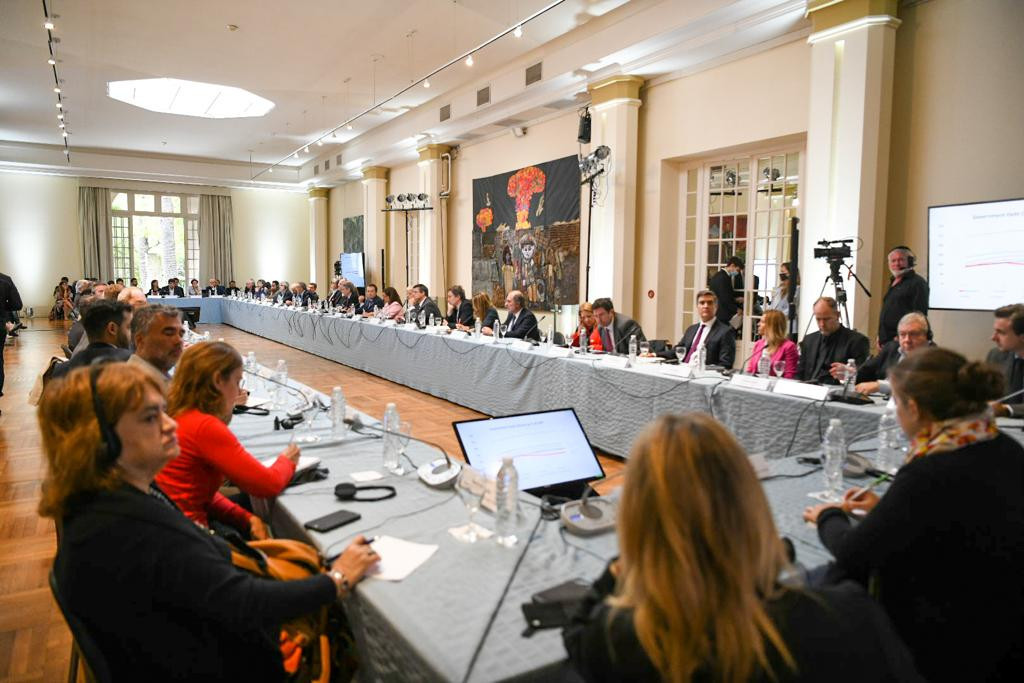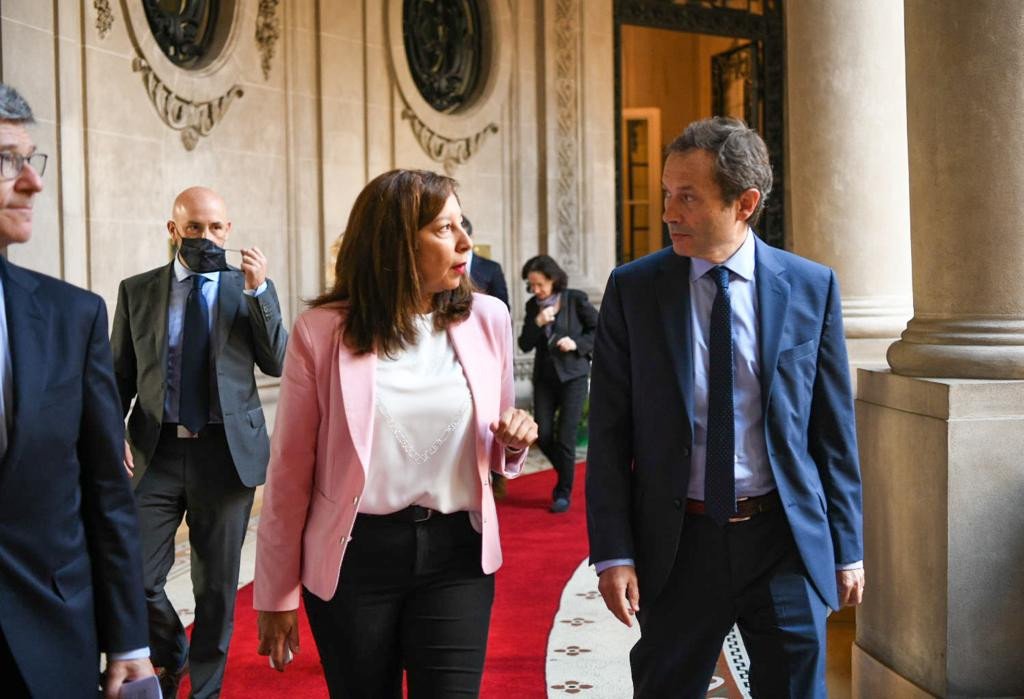Green Hydrogen
Carreras attended the forum on sustainable development in the Economic and Social Council
This morning, Governor Arabela Carreras attended a presentation by economist Jeffrey Sachs, Director of the Center for Sustainable Development at Columbia University and external advisor to the Economic and Social Council.
Fecha: 18 de abril de 2022
The forum aims to address strategies for sustainable development in the context of today's growing challenges. The meeting was led by the Secretary of Strategic Affairs and President of the Council, Gustavo Beliz.
Sachs agreed on the need to advance in a "green economy of knowledge", emphasizing the importance of the course initiated in Río Negro with the production of clean energies, food and modernization.
Carreras shared the panel of the forum "Sustainable and inclusive development in middle-income countries and the global challenges of the 21st Century" together with trade union, business, religious, economists, academics, university rectors, national and regional experts, and representatives of the diverse political arc.

In response to a question from the Governor of the Province of Río Negro, Sachs referred to Argentina's strategic opportunity in terms of food and energy production. "Countries should transform themselves in line with the environmental and technological realities in the world", he said.
In this regard, the U.S. economist mentioned six basic transformations that, in his opinion, countries should implement.
In the field of education, he proposed adding "the side of innovation" as an "extremely important" branch in the training of the next generations. "Argentina has many leading scientists in the world," he said.
He also highlighted as an emphasis the need to move forward in the energy transformation. "All countries need a roadmap or a path to reach zero net emissions by mid-century. The role of climate change is serious and rapid, and it is not under control," he stated.
He explained that in order to advance in this transformation "a strategy is needed" and expressed the need to "develop renewable energies, for example, if gas is developed, hydrogen must be produced from it". He added that the world "is going to leave behind the entire fossil fuel industry, because the crisis will be so severe that it will change world politics".
He also stressed the importance of working on the sustainable use of land and gave as an example "the crisis in Brazil, which is totally out of control, with the Amazon on the verge of becoming a savannah".
Regarding digitalization, he pointed out that "it will be the basis of all services in the future" and said that Argentina "should be the intellectual powerhouse of digital services in South America".

He also mentioned as main issues the importance of working on reforming the health system and urban sustainability. "Cities are being remade with much less cars, new modes of transportation. If I could design a city from zero, I would do it almost without cars," he argued.
He mentioned that Argentina is very well positioned to address these six long-term transformations. "This country has the two most important bases: food and energy. The rest of the world is wondering how it will eat and where it will get its energy from. Here they have the basics."
"We have to move forward in the green knowledge economy. That is the future. If you make it, life will be good. And there are no great barriers to that. But it does require a strategy for the long term," he stated.


